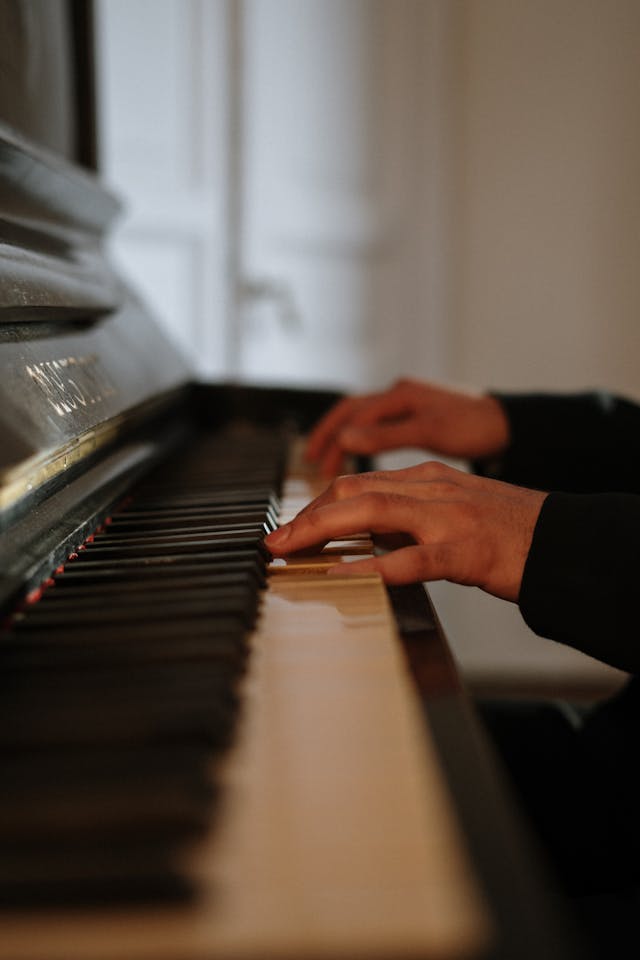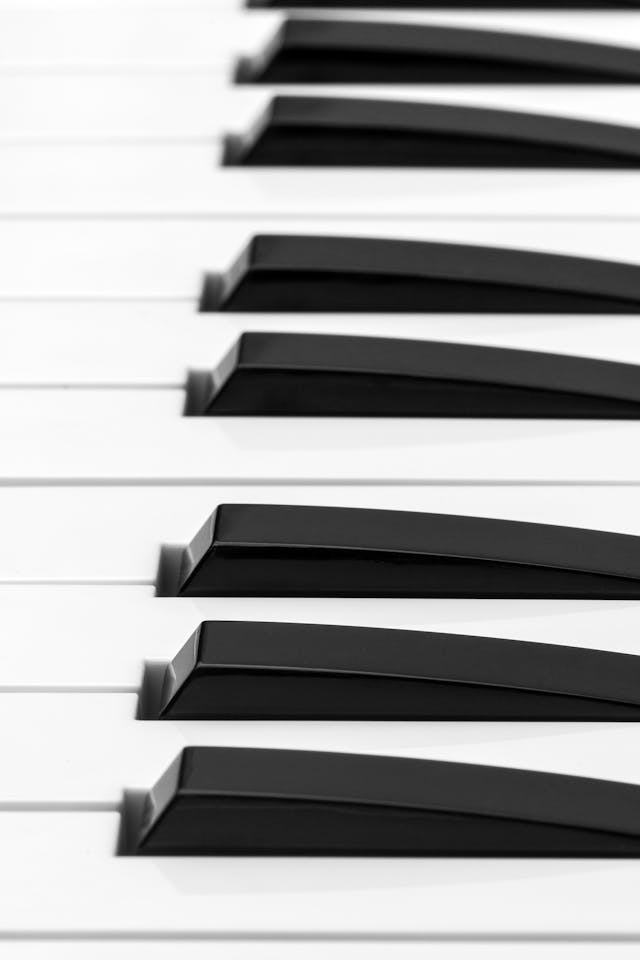Piano and Solfeggio Class: Learning to play the piano is a rewarding and enriching experience that offers numerous benefits, from enhancing cognitive abilities to providing a means of emotional expression. However, the journey to mastering the piano begins with the right guidance and a solid foundation in music theory. This article explores the essentials for starting piano lessons, emphasizing the importance of choosing an accredited teacher in both piano and music theory. We will also delve into the steps necessary to ensure that students are mentally and emotionally prepared for their musical education.


The Importance of Choosing an Accredited Teacher
One of the most critical decisions when starting piano lessons is selecting the right teacher. An accredited teacher possesses the necessary qualifications, experience, and knowledge to provide comprehensive and structured instruction. Here are some reasons why choosing an accredited teacher is essential:
- Professional Qualifications: Accredited teachers have undergone rigorous training and certification processes. They often hold degrees in music education, performance, or pedagogy, ensuring they have a deep understanding of both practical and theoretical aspects of music.
- Structured Curriculum: Accredited teachers follow a structured curriculum that covers essential aspects of piano playing and music theory. This curriculum ensures that students receive a well-rounded education, progressing systematically from basic to advanced levels.
- Tailored Instruction: Experienced teachers can tailor their instruction to meet the individual needs of each student. They can identify strengths and weaknesses, adapting their teaching methods to suit the student’s learning style and pace.
- Motivation and Inspiration: Accredited teachers often serve as mentors and role models, inspiring students to reach their full potential. Their passion for music and teaching can motivate students to practice diligently and pursue their musical goals.
- Assessment and Feedback: Accredited teachers provide regular assessments and constructive feedback, helping students track their progress and identify areas for improvement. This feedback is crucial for continuous development and growth as a musician.
Essentials for Starting Piano Lessons
Starting piano lessons involves more than just finding a teacher. It requires careful preparation and consideration of several key factors to ensure a successful learning experience.
- Setting Clear Goals: Before beginning lessons, it is important to set clear and realistic goals. These goals may include learning to play specific pieces, improving technical skills, or gaining a deeper understanding of music theory. Having clear objectives helps students stay focused and motivated.
- Acquiring a Quality Instrument: A well-maintained piano is essential for effective practice and learning. While it is not necessary to invest in a grand piano initially, it is important to have a quality instrument, whether it’s an acoustic piano or a high-quality digital piano with weighted keys and touch sensitivity.
- Creating a Practice Routine: Consistent practice is key to progress. Establishing a regular practice routine helps develop discipline and ensures steady improvement. Beginners should aim for shorter, more frequent practice sessions, gradually increasing the duration as they build stamina and proficiency.
- Understanding Music Theory: Music theory provides the foundation for understanding how music works. It includes concepts such as notation, rhythm, scales, chords, and harmony. A strong grasp of music theory enhances a student’s ability to read and interpret music, making the learning process more efficient and enjoyable.
- Developing Proper Technique: Proper technique is crucial for playing the piano effectively and avoiding injury. This includes correct posture, hand positioning, finger strength, and coordination. An accredited teacher can provide guidance on developing good technique from the outset, preventing bad habits that can be difficult to correct later.
- Embracing a Growth Mindset: Learning to play the piano is a journey that requires patience, perseverance, and a positive attitude. Embracing a growth mindset means viewing challenges as opportunities for growth and understanding that mistakes are a natural part of the learning process.


Steps to Follow in Piano and Solfeggio Classes
A structured approach to piano and solfeggio classes ensures that students build a strong foundation and progress steadily. Here are the steps typically followed in a comprehensive piano education program:
- Introduction to the Instrument and Basic Concepts:
- Familiarization with the piano: Understanding the layout of the keyboard, identifying the keys, and learning the names of the notes.
- Basic music theory: Introduction to the staff, clefs, note values, and basic rhythmic patterns.
- Developing Finger Strength and Coordination:
- Finger exercises: Simple exercises to build finger strength and improve coordination, such as finger drills and scales.
- Hand independence: Exercises that focus on playing different rhythms and patterns with each hand.
- Reading Music and Playing Simple Pieces:
- Sight-reading: Developing the ability to read and play music at first sight, starting with simple melodies and gradually increasing in complexity.
- Repertoire: Learning to play simple pieces that reinforce reading skills and introduce musical expression.
- Understanding and Applying Music Theory:
- Scales and chords: Learning major and minor scales, triads, and chord progressions.
- Harmony and ear training: Developing an understanding of harmonic concepts and practicing ear training exercises to recognize intervals, chords, and progressions by ear.
- Developing Technical Proficiency:
- Advanced finger exercises: More complex exercises to enhance finger agility, speed, and accuracy.
- Articulation and dynamics: Learning to play with different articulations (e.g., staccato, legato) and dynamics (e.g., piano, forte) to add expression to the music.
- Exploring Different Musical Styles and Genres:
- Classical repertoire: Studying pieces from different periods, such as Baroque, Classical, Romantic, and Modern.
- Other genres: Exploring jazz, pop, and other styles to develop versatility and a broad musical perspective.
- Performance and Interpretation:
- Performance practice: Preparing pieces for performance, focusing on technical accuracy, musical expression, and stage presence.
- Interpretation: Developing the ability to interpret music, understanding the emotional and historical context of pieces, and making stylistic choices.
- Ongoing Assessment and Feedback:
- Regular assessments: Periodic evaluations to track progress, identify areas for improvement, and set new goals.
- Constructive feedback: Receiving detailed feedback from the teacher to refine skills and enhance musicality.
Preparing Mentally and Emotionally for Piano Lessons
Starting piano lessons can be an exciting yet challenging experience. Ensuring that students are mentally and emotionally prepared is crucial for their success and enjoyment of the learning process.
- Setting Realistic Expectations:
- Understanding the learning curve: Recognizing that learning to play the piano takes time and effort, and progress may be gradual.
- Celebrating small achievements: Acknowledging and celebrating small milestones along the way to maintain motivation and a sense of accomplishment.
- Building Confidence and Resilience:
- Positive reinforcement: Providing positive feedback and encouragement to build confidence and self-esteem.
- Overcoming setbacks: Teaching students to view mistakes as learning opportunities and developing resilience in the face of challenges.
- Fostering a Love for Music:
- Enjoyment and passion: Encouraging students to explore music they love and find joy in playing the piano.
- Creative expression: Allowing students to express themselves through music, fostering a deeper emotional connection to their instrument.
- Managing Performance Anxiety:
- Performance preparation: Preparing thoroughly for performances to build confidence and reduce anxiety.
- Relaxation techniques: Teaching relaxation and breathing techniques to manage nerves and stay calm during performances.
- Creating a Supportive Learning Environment:
- Open communication: Establishing open and honest communication between the student, teacher, and parents (if applicable) to address concerns and provide support.
- Encouraging curiosity: Fostering an environment where students feel comfortable asking questions and exploring new ideas.
Conclusion
Starting piano lessons is a significant step towards a lifelong journey of musical discovery and personal growth. Choosing an accredited teacher in piano and music theory ensures that students receive high-quality instruction and a comprehensive education. By following a structured approach to learning and preparing mentally and emotionally, students can develop the skills and confidence needed to excel in their musical endeavors. Whether the goal is to play for personal enjoyment or pursue a professional career in music, the foundations laid in the early stages of piano education are crucial for future success. Embrace the journey, practice diligently, and let the love of music guide you as you embark on this rewarding adventure.
